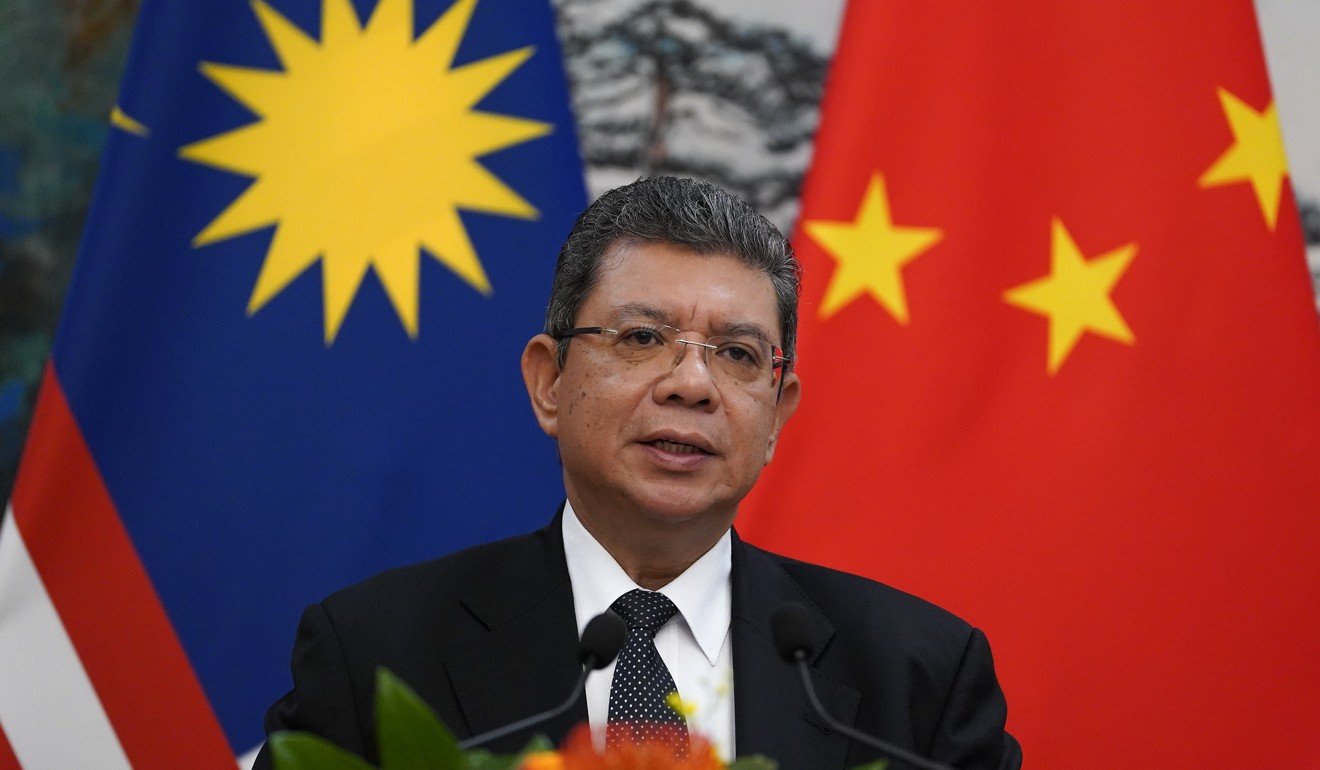What will Beijing do now that Malaysia has discovered the art of the deal in the South China Sea?
- Prime Minister Mahathir Mohamad piles another problem on China with sovereignty claim that pushes into heart of disputed waters
- While nations argue over their claims to rich resources, a threat to the South China Sea’s ecology needs their collective attention – and quickly

“I’m always moving. I’m moving in both directions,” US President Donald Trump once said, boasting about his “art of the deal” unpredictability strategy. But if there is any world leader who truly embodies multidirectional dynamism, it’s Malaysian Prime Minister Mahathir Mohamad.
Having seemingly resolved differences with China on its Belt and Road Initiative, Malaysia has immediately shifted to a new front, openly challenging Beijing’s expansive claims in the South China Sea.
In a year-end move, which seemingly caught everyone off guard, the Southeast Asian state formally submitted its claims to the extended continental shelf in the northern portions of the disputed waters to the United Nations.
The move predictably met a furious response from China, which has grappled with legal challenges from the Philippines and Vietnam in the past decade. But just as South China Sea claimant states enter a next phase of confrontation, an environmental time bomb is counting down to apocalyptic results, underscoring the urgent need for regional cooperation.
The Malaysian submission at the United Nations Commission on the Limits of the Continental Shelf aims to push the limits of its sovereign rights claims northward and deep into the heart of the South China Sea.
It builds on a joint submission with Vietnam, about a decade ago, which sought to extend Malaysia’s claims into the southwestern portions of the highly strategic and resource-rich basin.
In fact, it was that joint submission, in 2009, which prompted China to adopt a tougher stance in the area, including its first formal, multilateral reiteration of its “nine-dash line” claims which cover much of the South China Sea.
Four years later, the Philippines upped the ante by filing a compulsory arbitration case against China before a tribunal at The Hague. Emboldened by Manila’s unexpected legal success, Vietnam has threatened a similar move ahead of its assumption of chairmanship of the Association of Southeast Asian Nations (Asean) next year.
Indonesia, the first country to seek to extend its continental shelf claims as early as 2008, has pressured Beijing to clarify the legal basis and exact extent of its claims, while fortifying its own claims in the Natuna Sea amid concerns of Chinese incursions.
Opposed to any third-party arbitration, China has lashed out at Malaysia’s legal move, saying it “seriously infringes on China’s sovereignty, sovereign rights and jurisdiction in the South China Sea”, since “China has historic rights in the South China Sea”.

But Malaysian Foreign Minister Saifuddin Abdullah held his ground, criticising China’s claims as “ridiculous”, maintaining that “we will defend our claim” as a “sovereign right”.
More ominously, Saifuddin said that “anyone can challenge and dispute [competing claims], which is not something unusual”. The submission has multiple implications for China and the South China Sea disputes.
First, it shows that China’s rivals are hardening their positions. In particular, Malaysia, through two submissions to the UN in the past decade, is consolidating its legal claims to the western portions of the South China Sea basin.
Moreover, it portends potentially similar moves by other Southeast Asian claimant states, since the submission acknowledges “there are areas of possible overlapping entitlements” in the area, particularly with the Philippines and Vietnam.
Crucially, it’s also an indirect endorsement of the Philippines’ arbitration case against China, which reaffirmed extensive sovereign rights of smaller claimant states and rejected Beijing’s wholesale claim to resources and islands in the South China Sea basin.
There are also implications for the code of conduct negotiations between China and Asean, where Malaysia is likely to block any provision that limits its extensive sovereign rights claims.
Earlier this year, Malaysia made the relevance of the code of conduct negotiations clear, when it rejected dealing with China “on a one-on-one basis”, since “Asean centrality is a premium [and] because all of us are small countries” that will be outmanoeuvred on a bilateral basis.
Curiously, the submission is dated 2017, and was likely to have been prepared not long after the ruling in the Philippine-initiated tribunal on the South China Sea. Less beholden to Beijing than his disgraced predecessor Najib Razak, steeped in Chinese debt, Mahathir has given the go-ahead for the legal move in the contested waters.
Following a year of openly criticising China’s infrastructure investments, he successfully secured major concessions. Now, the Malaysian leader is intent on securing claims in adjacent waters, while simultaneously sweet-talking China as a “friend”.
“When we come against a very powerful [force] we need to find other ways of dealing with the problem rather than just open confrontation,” Mahathir told me earlier this year, portending a dynamic and multidirectional response to China’s rising influence and claims in the South China Sea. “It is important for China to take notice of other views and perceptions.”
Surely, China has now taken notice of Malaysia’s new foreign policy assertiveness. The greatest challenge, however, is an impending environmental disaster in the South China Sea.
Amid much degradation of coral reefs because of illegal overfishing, marine life is reportedly down to between five and 30 per cent of 1950 levels, promoting China to consider a 10-year emergency ecological preservation scheme. The solution, however, should ultimately be multilateral, involving all claimant states and concerned parties.
The code of conduct negotiations under Asean provide an ideal opportunity for such cooperation, especially if backed by confidence-building measures that dampen territorial tensions. Otherwise, the time bomb will outrun the dangerously snail’s pace negotiations over contested claims.
Richard Heydarian is an Asia-based academic